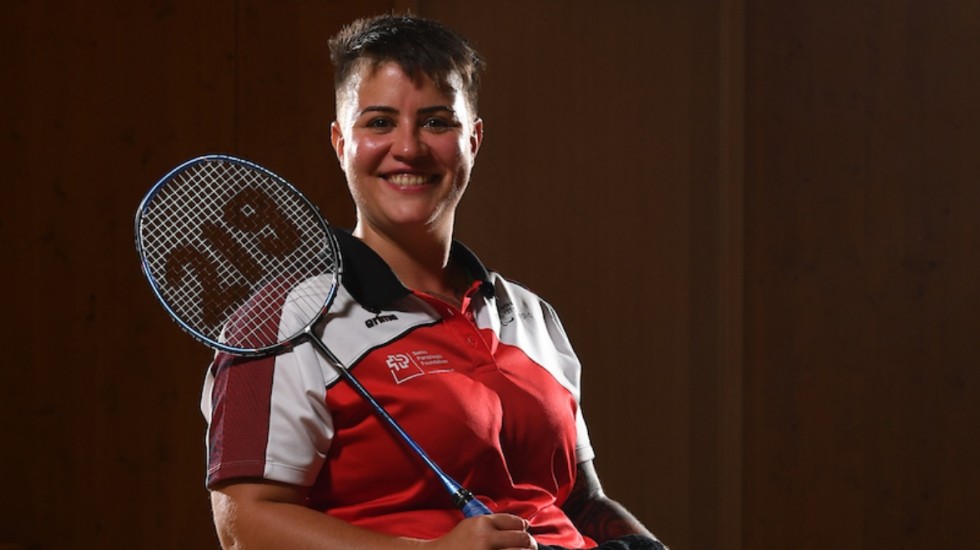
Trading One Set of Wheels for Another
From car racing to wheelchair badminton, Cynthia Mathez tends to be drawn to speed.
“Badminton is such a fast-paced sport that when I tried it for the first time three years ago, I immediately loved it,” said Switzerland’s Mathez who will compete in the women’s wheelchair doubles (WH1-WH2) category with Karin Suter-Erath at the TOTAL BWF Para-Badminton Championships in Basel, Switzerland.
Before badminton, Mathez was a judoka and a race car driver. Following in her father’s footsteps, as a little girl Mathez would tag along with her father to the race track.
“I drove my first car at 11 years of age,” she said. It was a 1989 Volkswagen Sirocco with a V8 engine, and the team colours were red, white and yellow, while the car’s racing number was 219, the same as her late father’s.
Her racket bears the number 219 in memory of the cars, while the figure “V8” is tattooed on the right side of her neck.
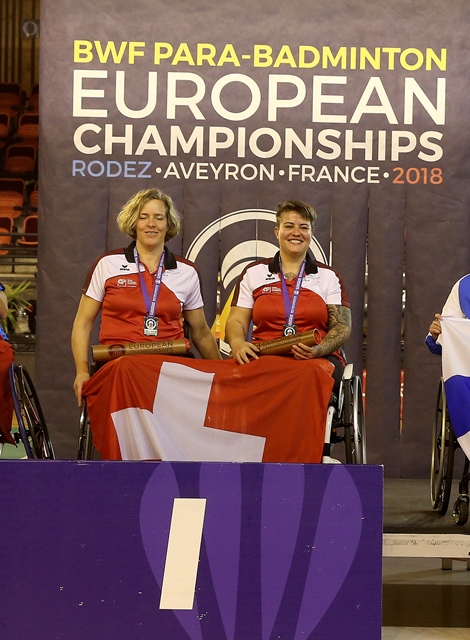
Heavily tattooed, each one marks a significant moment in her life, from the V8 to the simple boomerang on the fourth finger of her left hand.
“Emanuelle Ott of France and I have the same tattoo which we did when we were at the tournament in Australia in 2018. I wanted something to mark my days in Australia. Also, the boomerang is shaped like a V and that sounds like the French word ‘vie’ which means life,” she explained.
Mathez’s foray into badminton was not all by choice. Being diagnosed with multiple sclerosis (MS) at the age of 24 put a stop to her car racing days, and although she tried many other sports, she only discovered badminton when she began using the wheelchair.
MS is an unpredictable, often disabling disease of the central nervous system that disrupts the flow of information within the brain, and between the brain and body, thereby causing the body to slow down gradually over time.
And Mathez can feel her body slowing down.
“When I first started badminton I pushed my body to train a lot and didn’t rest enough. Now I know better. Sometimes I see black spots in my vision and I also suffer from extreme fatigue which means that my body is so tired I tend to sleep 15 hours a day. It makes it difficult to train and I have to schedule my time carefully so that I get enough rest and enough practice.”
Yet, Mathez has refused to let the disease define her life. ““The speed and the movement of playing badminton in the wheelchair is amazing. It has given me a chance to enjoy life and beat this disease for as long as possible.”
Time is already a valuable commodity for many but for someone with MS, it is especially precious and because of this Mathez is realistic about her goals.
Her main aim now is to win in Basel, having missed the opportunity at the World Championships two years ago. The Tokyo 2020 Paralympics is a dream Mathez is hoping she has a chance to achieve.
“Qualifying and competing in Tokyo will be amazing but my disease is such that I don’t know what will happen to my body tomorrow. I could be an active athlete for the next 20 years or I may only have one day and then not be able to move my arms or see clearly. Until that happens, I will continue to enjoy this sport,” said Mathez.
World Championships News

Lessons Learnt, Parting Perspectives 14 September 2019
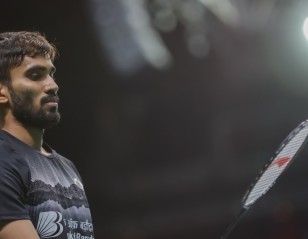
Kidambi Srikanth – A Search for Form 13 September 2019

Momota, in the Eyes of his Opponents 12 September 2019
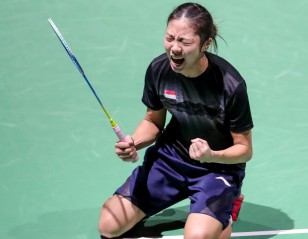
Recap: Upsets at the World Championships 10 September 2019
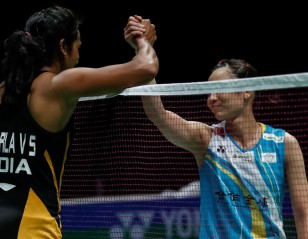
Recap: Memorable Matches of the World Championships 8 September 2019
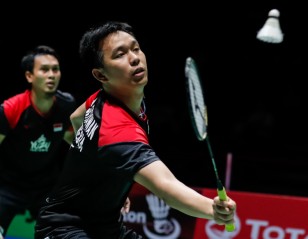
Highlights of the World Championships 7 September 2019
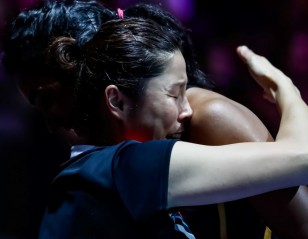
Played ‘Two’ Perfection – Basel 2019 4 September 2019

Badminton, Ice Hockey and the World Championships 4 September 2019
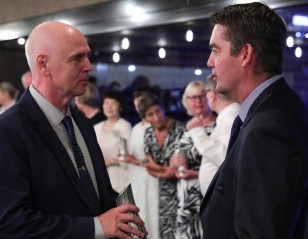
Three-Event Titan – 25th Edition World C’ships 3 September 2019

Legends of ’77 – 25th Edition World C’Ships 31 August 2019
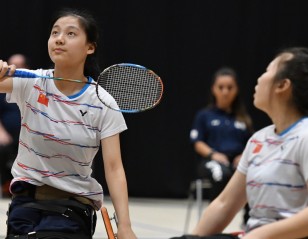
Para Badminton Event Comes to a Close – Basel 2019 27 August 2019
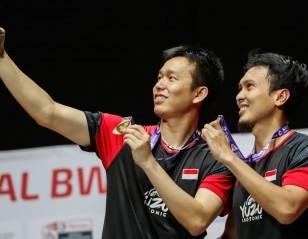
Wristy Trickery Wins the Day – Basel 2019 26 August 2019

Great Comeback Falls Short – Basel 2019 26 August 2019

Mixed Doubles ‘Great Wall’ Intact – Basel 2019 26 August 2019

Antonsen Bows to Momota’s Class – Basel 2019 25 August 2019
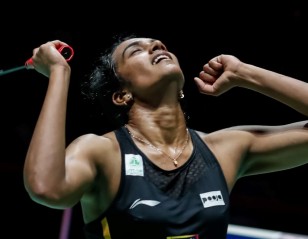
Gold – At Last! – Basel 2019 25 August 2019
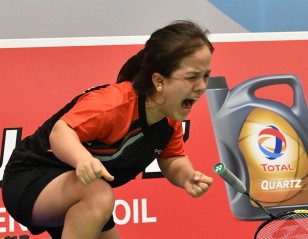
Poveda Makes It a First for Peru – Basel 2019 25 August 2019
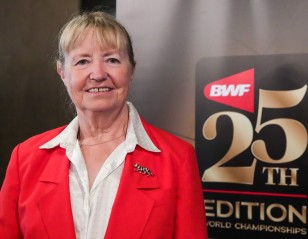
Legend Who Broke Records and Paved the Way for Future Stars –... 25 August 2019
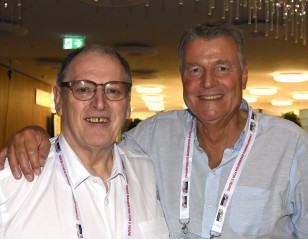
Ray’s a Real Sport – 25th Edition World C’Ships 25 August 2019
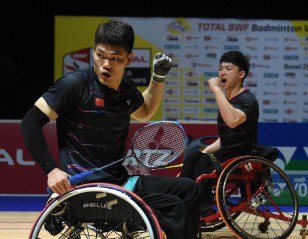
China Take Two Gold – Basel 2019 25 August 2019

‘Upsetting’ Night for China – Basel 2019 24 August 2019
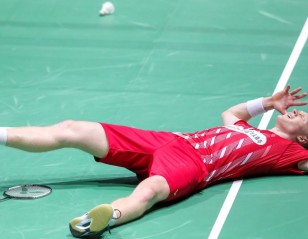
Antonsen’s ‘Insane’ Dream – Basel 2019 24 August 2019
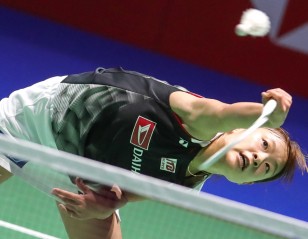
Glasgow ’17 on the Cards – Basel 2019 24 August 2019
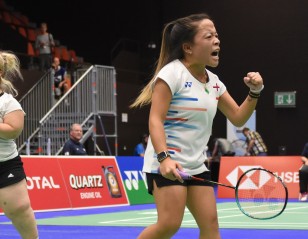
Five Down, Seventeen to Go – Basel 2019 24 August 2019
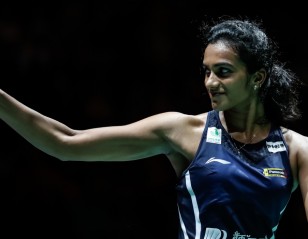
Sindhu Assures Herself: Tomorrow Will Be Different 24 August 2019
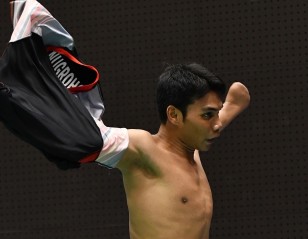
Para Badminton Athletes Turn It Up a Notch – Basel 2019 24 August 2019
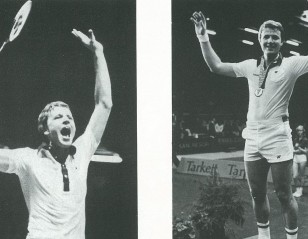
Flaming Dane Set Courts Aglow – 25th Edition World C’Ships 24 August 2019
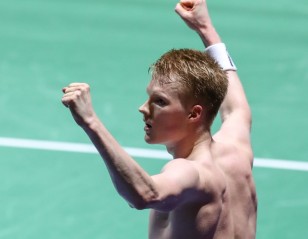
Antonsen Delivers for Europe – Basel 2019 23 August 2019

Du/Li Stand Tall After 2-Hour Epic – Basel 2019 23 August 2019
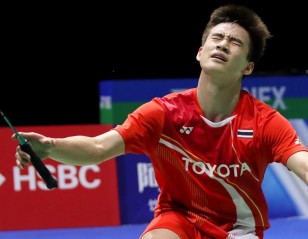
Kantaphon Leads Thailand’s Record Haul – Basel 2019 23 August 2019
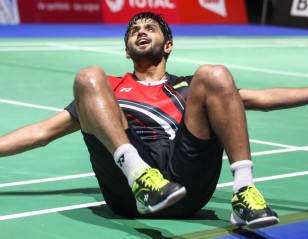
Sensational Session for India – Basel 2019 23 August 2019
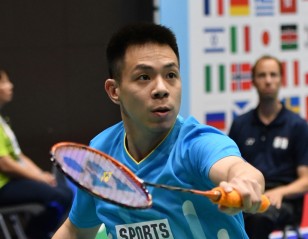
Tall Order for Standing Men – Basel 2019 23 August 2019
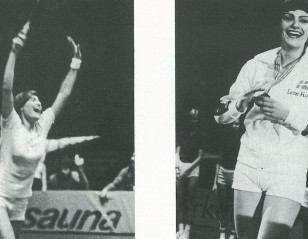
Crowd Pleasing Superstar – 25th Edition World C’Ships 23 August 2019

Teenage Shuttler Meets His Idol – Basel 2019 23 August 2019
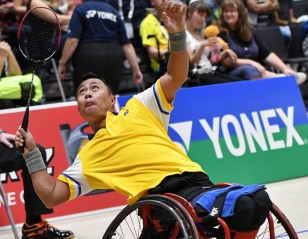
Wheelchair Top Seed Toppled – Basel 2019 23 August 2019

‘Two’ Much Trouble! – Basel 2019 22 August 2019

Intanon Survives Scare – Basel 2019 22 August 2019

BWF Statement – TOTAL BWF World Championships 2019 22 August 2019

Belated Birthday Blitz! – Basel 2019 22 August 2019
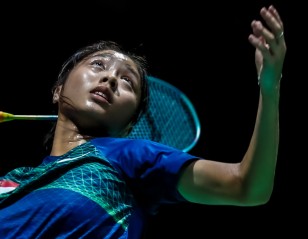
Back Problem Doesn’t Stall Jia Min – Basel 2019 22 August 2019
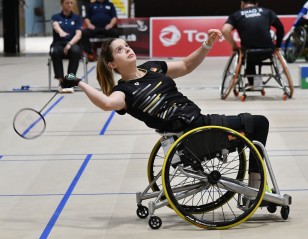
Girl Power – Basel 2019 22 August 2019
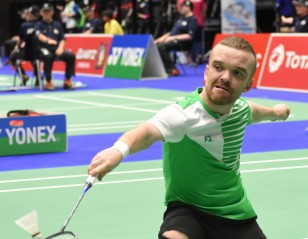
Group Rounds Move into Main Draw – Basel 2019 22 August 2019
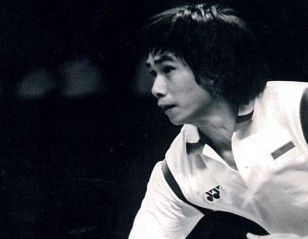
Lessons from the Seventies – 25th Edition World C’Ships 22 August 2019
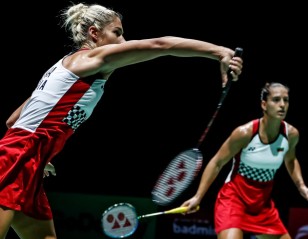
Women Getting in Gear – Basel 2019 21 August 2019
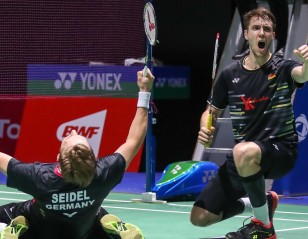
German Shock for Fifth Seeds – Basel 2019 21 August 2019
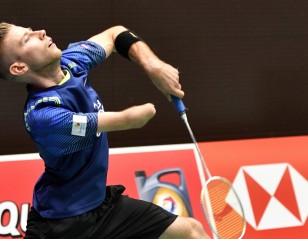
I Feel at Home says Mroz – Basel 2019 21 August 2019
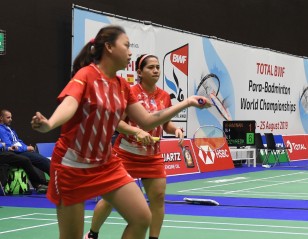
The Power of the Mind – Basel 2019 21 August 2019
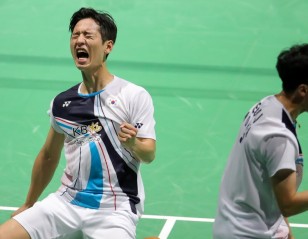
Minions Crash Land at Worlds Yet Again – Basel 2019 21 August 2019
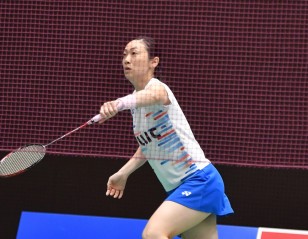
Suzuki Banks on Experience Over Age – Basel 2019 21 August 2019

Nagahara ‘Mixing It Up’ – Basel 2019 20 August 2019
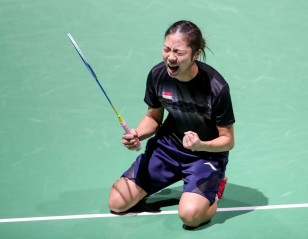
Jia Min Ousts Top Seed – Basel 2019 20 August 2019

Lin’s Challenge Sputters Out – Basel 2019 20 August 2019
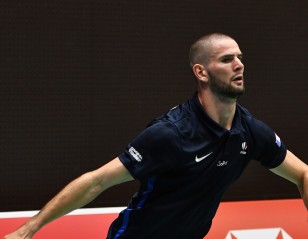
Mazur On Track to Retain Crown – Basel 2019 20 August 2019
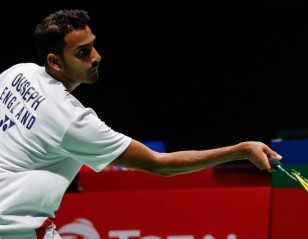
Ouseph Exits Stage, Bids Goodbye – Basel 2019 19 August 2019
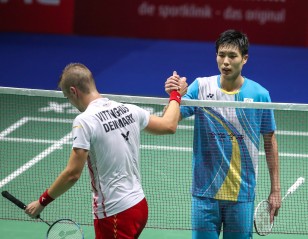
Chou Survives Danish Test – Basel 2019 19 August 2019

A Title Dedicated to a Battle Against Cancer 19 August 2019
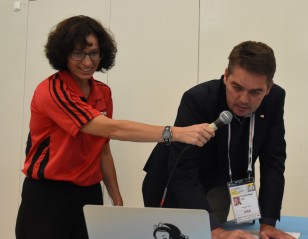
Draw Provides an Even Playing Field for All 18 August 2019

Para-llel Event a Unique Experience for Badminton Fraternity 18 August 2019
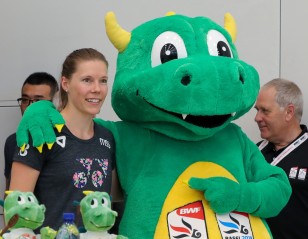
An Occasion to Cherish for Jaquet – Basel 2019 18 August 2019
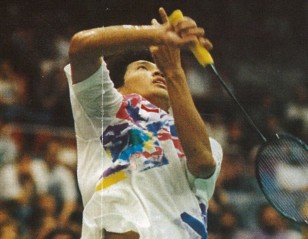
‘100 Watt Smash’ that Lit Up Lausanne – 25th Edition World C’Ships 17 August 2019

Preview: Worlds of Opportunity 17 August 2019

By Chou’s Side 16 August 2019

Satwik/Chirag to Miss World Championships 16 August 2019
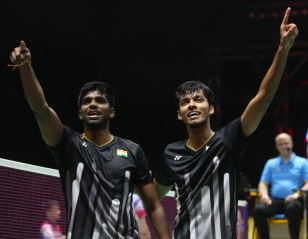
Indian Pair Blazes a Trail 15 August 2019
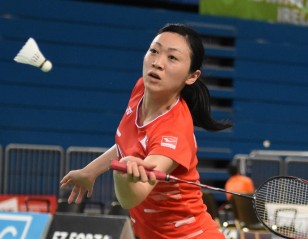
Awesome Threesome of SU5 – Para Badminton World C’Ships 14 August 2019

Life Lessons, From Coach Kim Ji Hyun 14 August 2019

Free of Pressure, Antonsen Senses His Chance 13 August 2019
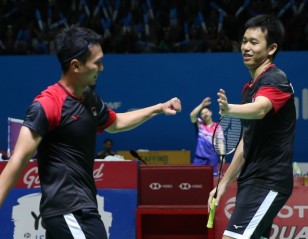
Ahsan/Hendra Play it Cool Despite Hot Form 11 August 2019

England Duo Anticipate Fruitful Week in Basel 10 August 2019

Women’s Singles Re-Draw – TOTAL BWF World Championships 2019 9 August 2019
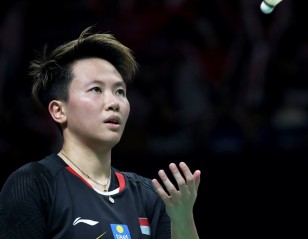
Winny Will Need Support: Liliyana Natsir 8 August 2019
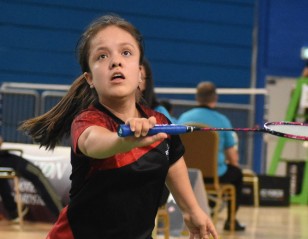
Sports Upbringing Gives Edge to Poveda 7 August 2019

World Championships Draw Released 5 August 2019
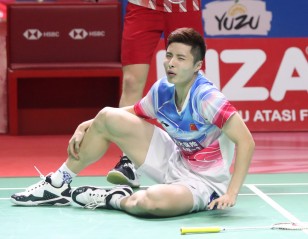
Marin, Shi Join Axelsen on Sidelines 5 August 2019
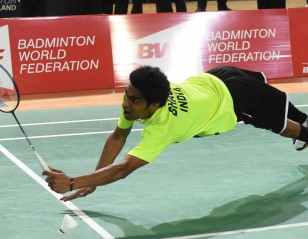
New Para Badminton Chapter Unfolds in Basel 1 August 2019

Injured Axelsen Withdraws From World Championships 31 July 2019
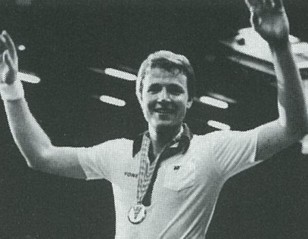
From Malmo to Basel – 25th Edition World C’Ships 30 July 2019
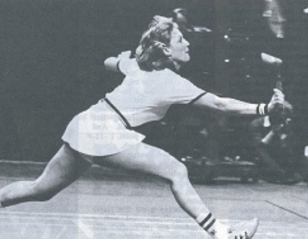
Famous Five and the Good Old Days – 25th Edition World C’Ships 19 July 2019

Revisiting a Hero: Sigit Budiarto 11 July 2019

History Beckons Zhang Nan 10 July 2019
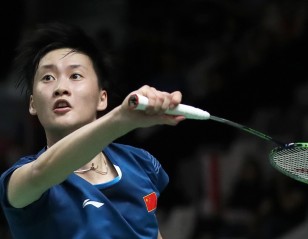
Chen To Lead China’s Charge 9 July 2019

19 Days Left To Register for World Coaching Conference 26 June 2019
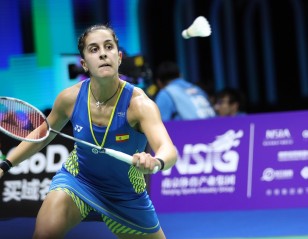
Marin on the Mend and Eyes Return 22 June 2019

Two Months To Go – World C’Ships Countdown 19 June 2019

Li & Liu – Stepping Up When It Matters 7 June 2019
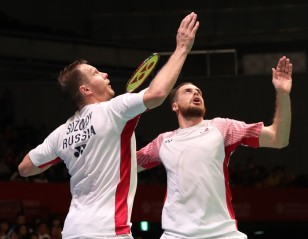
Ivanov & Sozonov Rekindle The Fire 3 June 2019
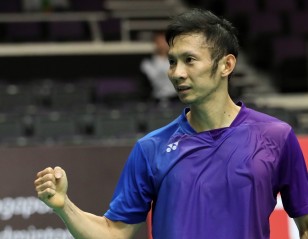
Tien Minh – Veteran Still Chasing His Dreams 2 June 2019
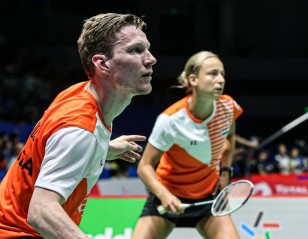
Confidence Boost for Dutch Duo 1 June 2019

Matsumoto & Nagahara: Rapid Ascent to Pinnacle 8 May 2019

Tai Eases into Top Gear 25 April 2019
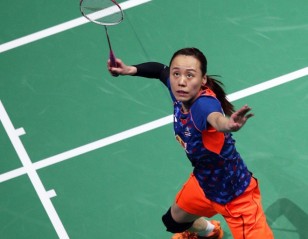
Zhao Yunlei Star Speaker at Coaching Conference 24 April 2019
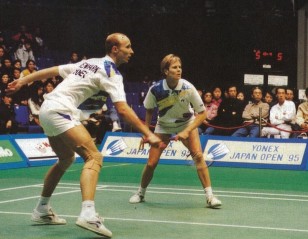
‘The Physical Level Has Gone Up’ 22 April 2019
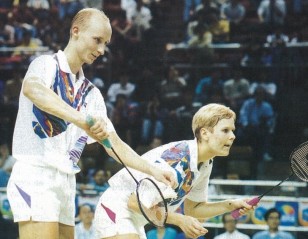
Memories of Lausanne 1995 20 April 2019

Momota Sets the Pace, but Speedbreakers Lurk 18 April 2019

BWF and Total Celebrate Five Years of Partnership 18 April 2019
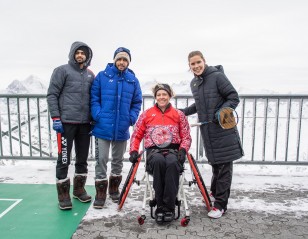
Badminton Thrust into Bright Lights – World C’Ships 13 March 2019

Gold and Glory for Arbi – Throwback ’95 World C’ships 19 February 2019

GoDaddy Extends Major Events Partnership with BWF 11 February 2019

Star speakers assembled for BWF World Coaching Conference 2019 30 January 2019
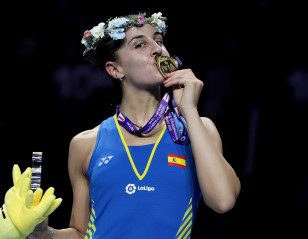
Singles Champions – Down the Ages 20 December 2018






























